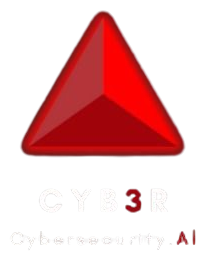Ethical Hacking
This 1-year Ethical Hacking Diploma Course is designed to provide a comprehensive understanding of cybersecurity and ethical hacking techniques. It covers essential topics such as network security, penetration testing, malware analysis, web application vulnerabilities, and social engineering. Students will gain hands-on experience with industry-standard tools and techniques, preparing them for a successful career in cybersecurity. Upon completion, students will be equipped with the skills needed to identify vulnerabilities, protect systems, and conduct ethical penetration tests, while adhering to legal and ethical guidelines.
What You’ll Learn
Introduction to Ethical Hacking and Cybersecurity: Understand the basics of ethical hacking, its importance, and how it is used to identify security vulnerabilities.
Networking Fundamentals: Learn the key components of networking, protocols, and TCP/IP essentials for ethical hacking.
Footprinting and Reconnaissance: Master the techniques used to gather information about potential targets.
Scanning and Enumeration: Learn the skills needed to identify open ports, services, and networks.
System Hacking: Understand how systems are breached, including password cracking and privilege escalation.
Malware Analysis and Countermeasures: Study how to analyze, detect, and counteract malicious software.
Wireless Network Hacking: Learn about vulnerabilities in wireless networks and how to secure them.
Web Application Security: Discover how to identify common vulnerabilities such as SQL injection, cross-site scripting (XSS), and others.
Social Engineering: Understand the human aspects of security, including phishing attacks and other manipulative tactics.
Legal and Ethical Issues: Study the ethical, legal, and regulatory requirements around hacking and cybersecurity.
Penetration Testing and Reporting: Gain hands-on experience with penetration testing, and learn to write detailed reports for clients.
Course Curriculum
Section 1: Introduction to Ethical Hacking
Section 2: Networking Essentials for Ethical Hackers
Section 3: Footprinting and Information Gathering
Section 4: Scanning and Enumeration
Section 5: System Hacking and Exploitation
Section 6: Malware Analysis and Protection
Section 7: Wireless Network Hacking
Section 8: Web Application Security
Section 9: Social Engineering and Phishing
Section 10: Penetration Testing and Ethical Hacking Report
Who is This Course For?
Aspiring Ethical Hackers: Individuals who want to start a career in cybersecurity and ethical hacking.
IT Professionals: Those looking to upskill in cybersecurity and penetration testing.
Network Administrators: People managing networks and systems who wish to secure their environments.
Security Enthusiasts: Anyone passionate about learning how to protect systems from cyber threats.
Skills You’ll Gain:
Advanced Networking Knowledge: Master the networking protocols and techniques essential for ethical hacking.
Penetration Testing: Perform simulated attacks to evaluate system vulnerabilities.
Malware Identification: Analyze and detect various types of malware.
Security Auditing: Conduct vulnerability assessments and secure systems.
Critical Thinking: Develop the ability to approach cybersecurity challenges with a problem-solving mindset.
Reporting: Ability to generate detailed vulnerability reports and solutions for clients.
Important Note:
Prerequisites: Basic knowledge of computer networks and operating systems is recommended but not mandatory. Previous IT or programming knowledge can be beneficial.
Hands-On Work: Be prepared to spend time in labs and simulations to practice the techniques learned.
Legal Disclaimer: Always conduct ethical hacking in authorized environments, and follow the legal and ethical guidelines provided during the course.
